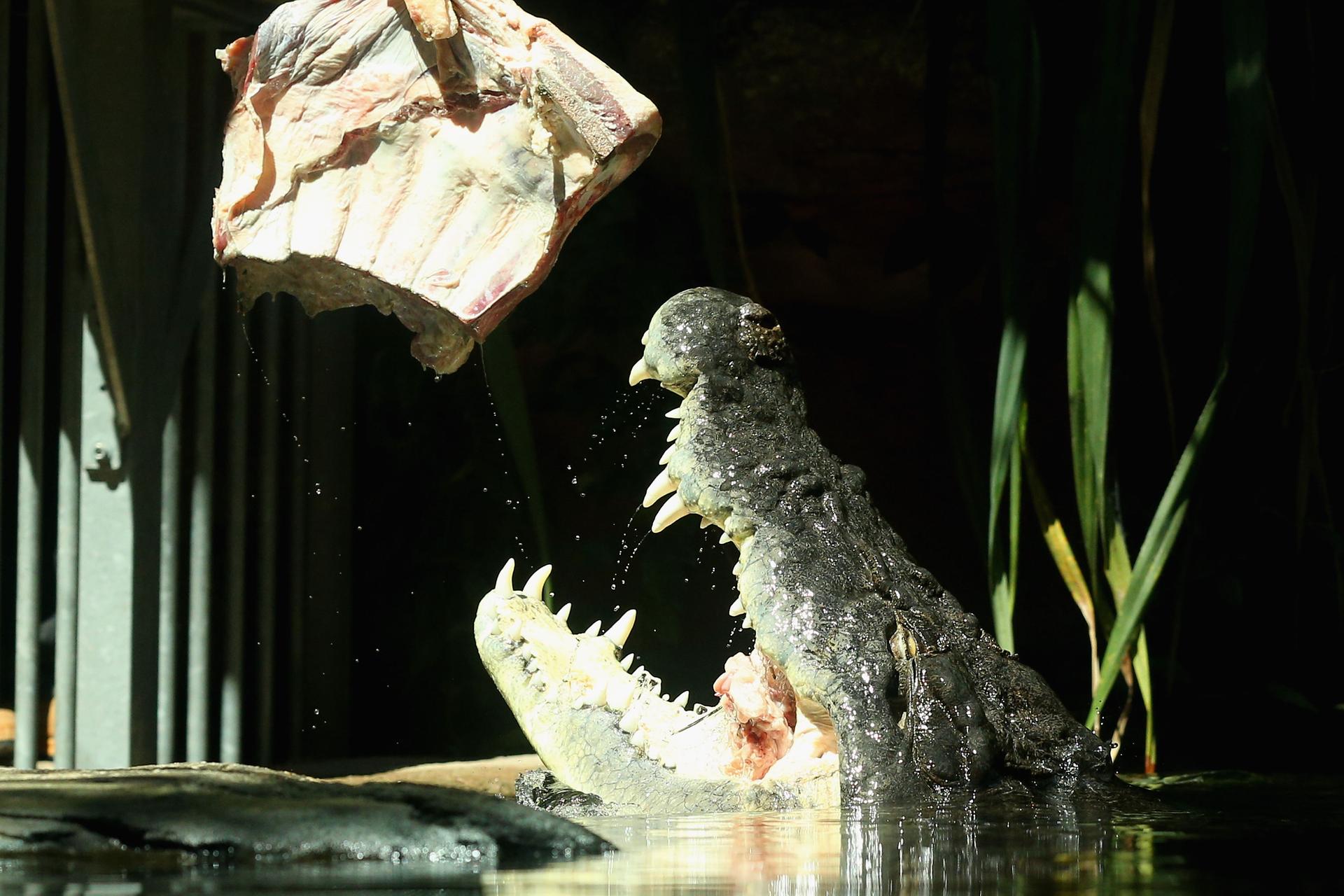Crocodile jaws more sensitive than human fingertips (VIDEO)
Crocodile jaws are more sensitive to the touch than human fingertips, a new study suggests.
The jaws of crocodiles are actually more sensitive to touch than human fingertips say scientists in the US.
Researchers at Vanderbilt University found that bumps around the crocodile's mouth were made of special cells that allow them to feel even the lightest touch.
The bumps are believed to be the roots of why the beasts are so quick to react to stimuli while hunting, said BBC.
"We didn't expect these spots to be so sensitive because the animals are so heavily armored," said study co-author Duncan Leitch, reported UPI.
Previous studies have concluded that the bumps may have been for liquid secretion or magnetic field receptors.
The researchers tested how the bumps were triggered and found that touch rather than electrical fields or salinity was the principle stimuli.
"When I used a calibrated series of fibers to touch or tickle the [bumps], I found that they were responsive to forces finer than our own fingertips – a sensory system widely studied for its own sensitivity," said Leitch, in a statement.
The study was conducted on both crocodiles and alligators which share the presence of the dome-shaped bumps.
National Geographic noted that researchers believe the bumps were likely an evolutionary necessity that helped to protect the reptile's sensitive nerves during an attack.
The study was published in the Journal of Experimental Biology.
The story you just read is available for free because thousands of listeners and readers like you generously support our nonprofit newsroom. Every day, reporters and producers at The World are hard at work bringing you human-centered news from across the globe. But we can’t do it without you: We need your support to ensure we can continue this work for another year.
Make a gift today, and you’ll get us one step closer to our goal of raising $25,000 by June 14. We need your help now more than ever!
